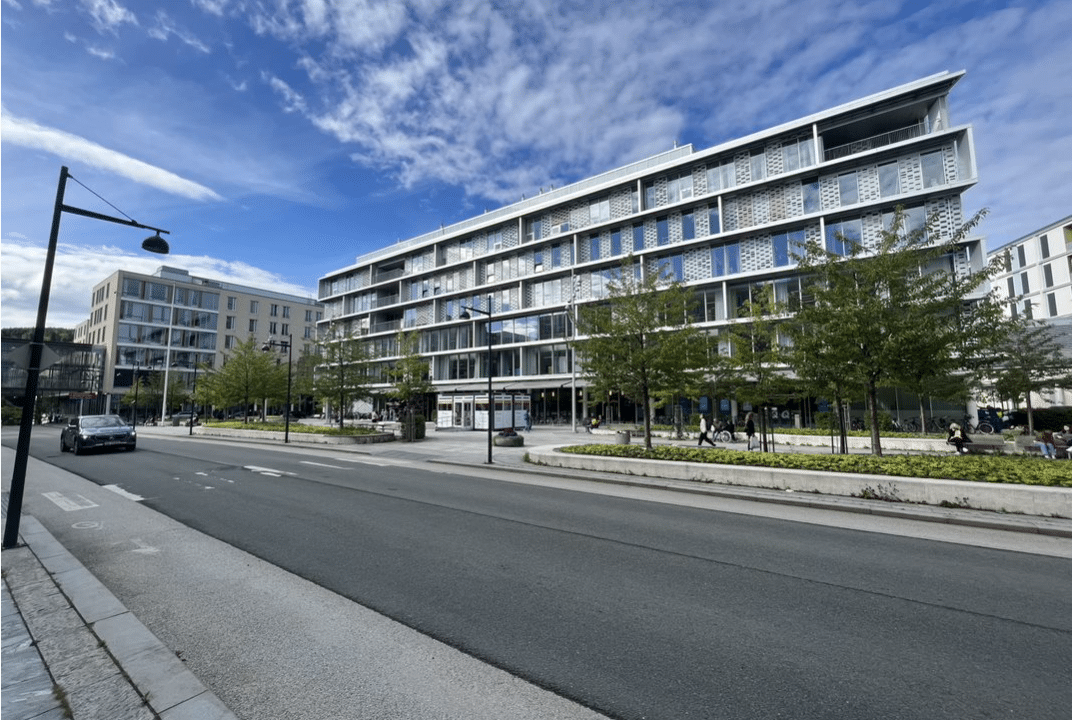Envac collect
2 separate fractions
general hospital waste
soiled linen
The Sirio-Libanes Hospital in Sao Paulo is one of the most prominent hospitals in South America, having become internationally recognised for its commitment to healthcare. When it decided to renovate its buildings and double its capacity, the choice to install automated waste collection was taken in order to ensure that waste collection in and around the hospital was modernised and made as simple and as hygienic as possible. After winning the contract – the first of its kind in a Latin American hospital – Envac set about designing a system that could collect the waste of 650 beds across two fractions: waste and linen.
2 separate fractions
general hospital waste
soiled linen
waste 8 tons/day
linen 8.5 tons/day
116
across 16 floors
250 m

Envac installed two separate pipe networks – one for linen and one for general waste – that would transport waste from 116 disposal points, located over 16 floors, throughout the hospital.
Used linen is now transported from the disposal points, via airflow, to automated conveyors that feed the trolleys before being sent to the laundry rooms. General waste is simply transported by vacuum technology to a waste collection station before being placed in hermetically sealed containers and sent to be processed.
In both instances, a central computer automatically manages the process and provides the hospital with real time data relating to collection levels and frequency.
The automated waste collection system installed by Envac in 2017 marked a significant milestone for South American hospitals. This solution transported over nine tons of linen and nearly nine tons of general waste every day via a 820 foot-long pipe network, with 116 collection points across the hospital.
One of the most noticeable benefits of the new system was the significant reduction in the time required to manually handle waste. Hospital porters no longer need to push trolleys of waste around the hospital, freeing up more time to focus on front-of-house duties.
The system has contributed to creating a cleaner and more productive hospital environment while also minimising operational costs. The use of the hospital elevators was reduced, and the time saved from manual waste transportation was reallocated for other essential tasks.
This fully operational system runs 24 hours a day, 365 days a year, and reflects the Sirio-Libanes Hospital’s commitment to world-class standards. Envac’s innovative solution has become the model for automated waste management in healthcare facilities in South America, paving the way for more sustainable and efficient waste management systems.
The adoption of pneumatic collection is in line with the polices adopted by the Sírio-Libanês Hospital related to the quality of care, patient safety and sustainability. The decision to use the system, taken at the beginning of the expansion of our structure, was one of the factors that contributed to Green Building Gold obtained for the new towers. This is a great innovation in the hospital area in Brazil with important benefits for the operation of our institution.
Dr Paulo Chapchap CEO of the Sírio-Libanês Hospital

Healthcare Trondheim, Norway
One of the most notable measures adopted by the hospital is the installation of Envac’s automatic waste collection system. The system is designed to collect four different waste streams: paper, confidential paper, residual, and plastic.

Healthcare Huzhou, China
The Huzhou Central Hospital is in charge of providing medical care to over 4 million individuals. Envac’s automatic waste collection system provides an efficient solution for managing general waste and soiled linen in the hospital, creating a safer and cleaner hospital environment.

Healthcare Atlanta, Georgia
Consistently ranked among the top children’s hospitals by U.S. News & World Report, Children’s Healthcare of Atlanta strengthens its green and sustainable focus with an automated pneumatic waste removal system, ensuring a cleaner and more efficient environment for patients and staff.